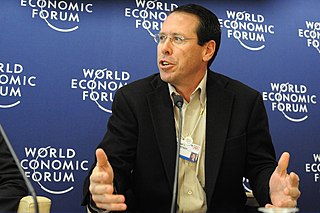A Quote by Adi Godrej
There must be an opportunity that matches with our strategy. Just because we have a gap, we don't want to go and acquire anything and everything. What we acquire should fit in with our strategy, human resources and market expectations.
Related Quotes
If your strategy calls for you to be in America, then you will go into America. If your strategy calls for you to be in M&A, then you'll do an acquisition. You usually acquire a company to acquire technology, geographic advantage, etc. Similarly, geographic expansion is very much like M&A. It's done to advance a strategy.
The opportunities and threats existing in any situation always exceed the resources needed to exploit the opportunities or avoid the threats. Thus, strategy is essentially a problem of allocating resources. If strategy is to be successful, it must allocate superior resources against a decisive opportunity.
What you want to acquire, you should dare to acquire by any means. What you want to see, even though it is with difficulty, you should see. You should not let it pass, thinking there will be another chance to see it or acquire it. It is quite unusual to have a second chance to materialize your desire.
You can talk all you want about having a clear purpose and strategy for your life, but ultimately this means nothing if you are not investing the resources you have in a way that is consistent with your strategy. In the end, a strategy is nothing but good intentions unless it's effectively implemented.
One of the problems many leaders report is a gap between strategy and execution. Usually this "gap" arises because the so-called "strategy" is a set of financial performance goals, not an approach to overcoming challenges. The two key ways to narrow this gap are to avoid bad strategies that fail to explain how to proceed and to establish a proximate objective - something which can be accomplished and which will open the door to further progress.
It is crucial to have a strategy in place before problems hit, precisely because no one can accurately predict the future direction of the stock market or economy. Value investing, the strategy of buying stocks at an appreciable discount from the value of the underlying businesses, is one strategy that provides a road map to successfully navigate not only through good times but also through turmoil.



































